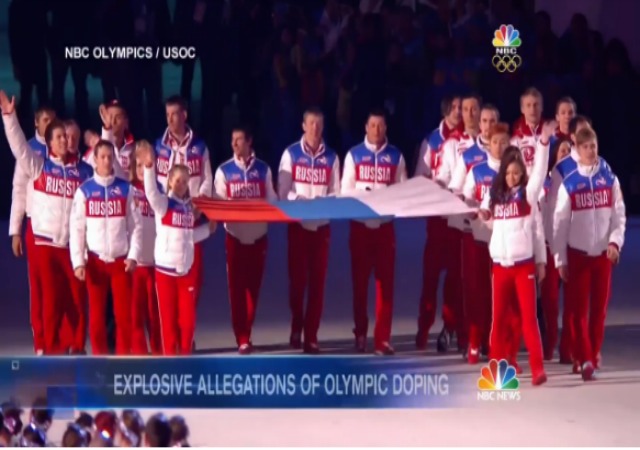Department of Justice Investigating Russian Doping Claims

The Department of Justice has decided to investigate the massive Russia doping scandal. U.S. courts ruled that prosecutors may charge foreigners abroad if they have connections to the U.S.
The New York Times reported that the U.S. attorney’s office for the Eastern District of New York. The officials have targeted “Russian government officials, athletes, coaches, antidoping authorities and anyone who might have benefited unfairly from a doping regime, according to the people, who did not have authorization to speak about the inquiry publicly.” Possible charges include conspiracy and fraud.
The Times did not elaborate on which connections qualify. They only mentioned “the connection can be limited, such as the use of an American bank.”
The charges stem from a World Anti-Doping Agency (WADA) report in November that said Russian athletes received performance enhancing drugs directly from the state. The agency found someone “intentionally and maliciously” destroyed over 1,400 samples in Moscow. Russia won 24 gold medals in the 2012 London Olympics, but the evidence shows the country should not have allowed most of those athletes to perform.
WADA recommended the Olympics ban the Russian Federation from the 2016 Olympics in Brazil.
Russia fought the allegations, but eventually relented and accepted the full suspension from the International Association of Athletics Federations:
“The IAAF council was today informed that written confirmation had been received yesterday from Araf [Russian Federation] accepting their full suspension without requesting a hearing as was their constitutional right.“Araf confirmed they understood that the council would only accept their reinstatement as an IAAF member following the recommendation of the IAAF inspection team who will decide if the verification criteria have been fulfilled. Araf confirmed they will cooperate fully and actively with the team.”
WADA identified Grigory Rodchenkov, “the longtime head of Russia’s antidoping laboratory,” as the man in charge of the doping. Rodchenkov and the Russian Ministry of Sport admitted doping problems existed.
The U.S. officials have opened an investigation against him.
Russian Sports Minister Vitaly Mutko also acknowledged “serious mistakes,” but did not provide clear details if the doping occurred at the state level.
The Eastern District also has an investigation into the FIFA corruption case, which also names Mutko:
While the Eastern District’s FIFA investigation and Russian doping investigation are independent inquiries, there is an overlap between the two matters. Prosecutors from the business and securities fraud section and the organized crime division are involved in both, and certain public figures have overlapping ties to Russian sports and global soccer.Mr. Mutko, Russia’s minister of sport, is a member of FIFA’s ruling council, a position he has held since 2009. He was appointed to his current role in Russian government by President Vladimir V. Putin in 2008.In his account to The Times, Dr. Rodchenkov, who oversaw Russia’s antidoping lab in Moscow for a decade, said he often took direct orders from Mr. Mutko’s deputy, Yuri Nagornykh, especially leading up to the Sochi Olympics in 2014. In Sochi, Dr. Rodchenkov said, he staged an elaborate dark-of-night operation to destroy Russian athletes’ tainted urine samples on orders from the government.
The International Olympic Committee (IOC) also “opened disciplinary proceedings against the 31 unidentified athletes from 12 countries who competed in Beijing.” They will “reanalyze drug tests from the 2014 Sochi Winter Games” due to the tampering allegations in the WADA report. They did not identify the athletes they caught from the 2008 Beijing Olympics.
[Featured image via NBC News]
CLICK HERE FOR FULL VERSION OF THIS STORY